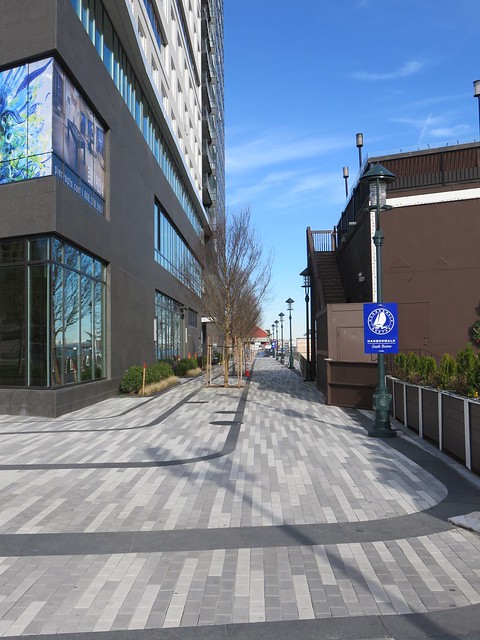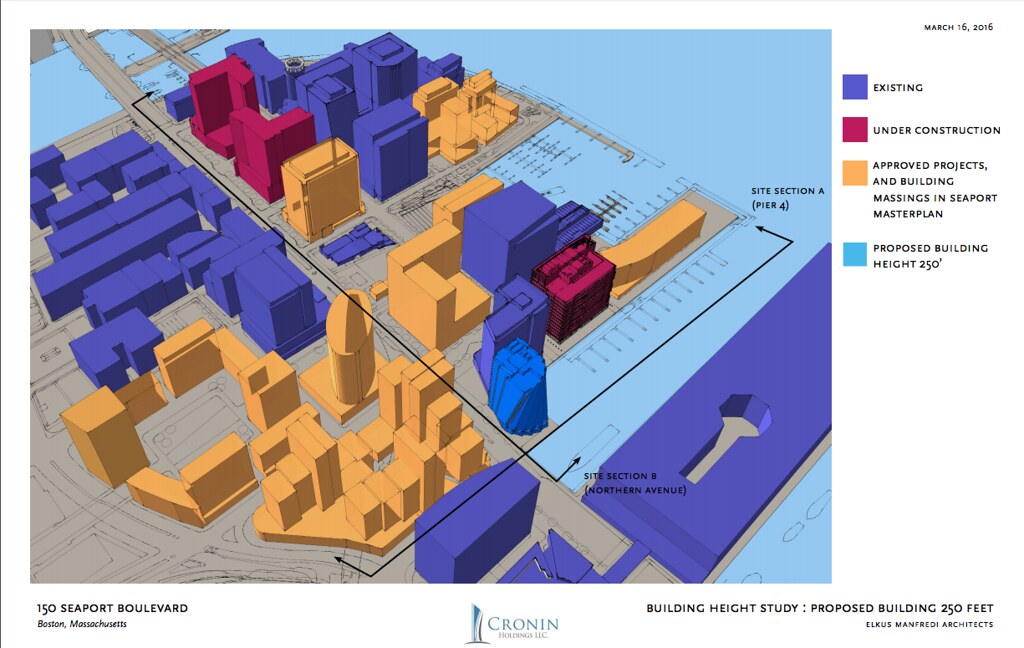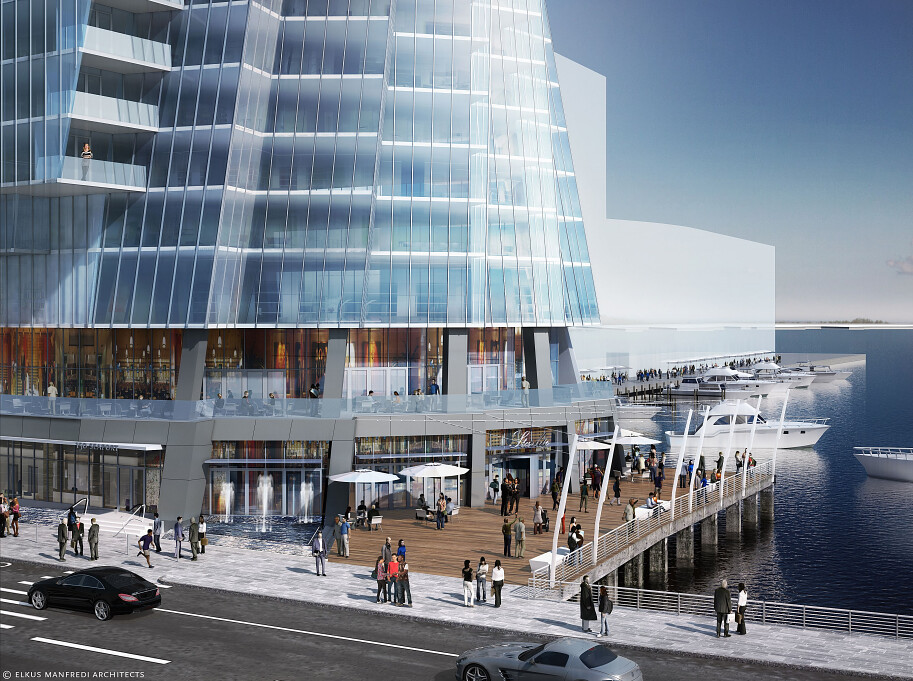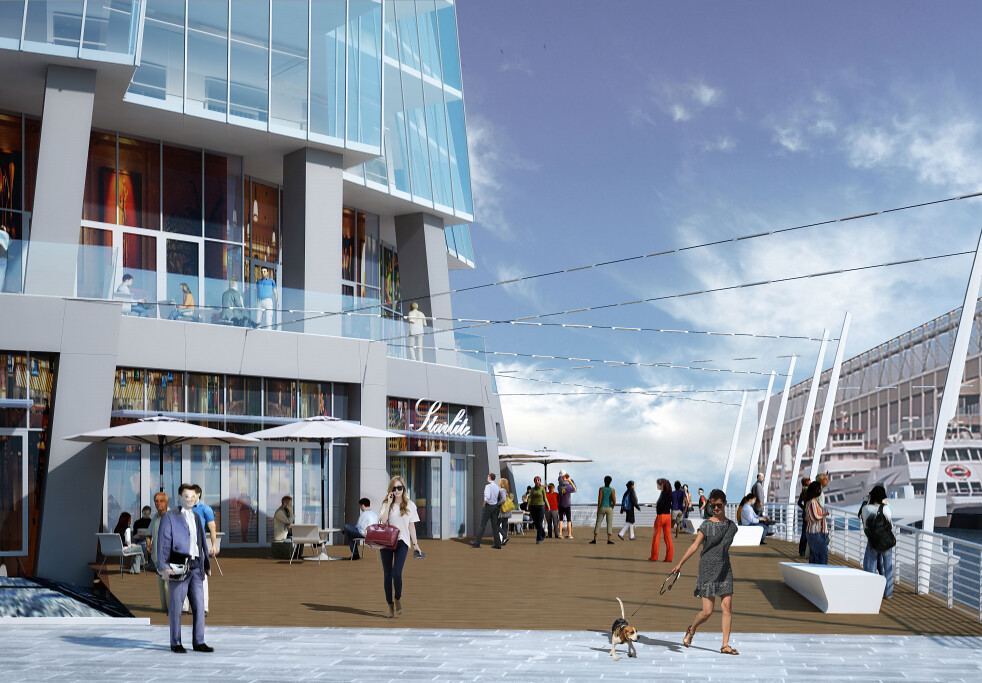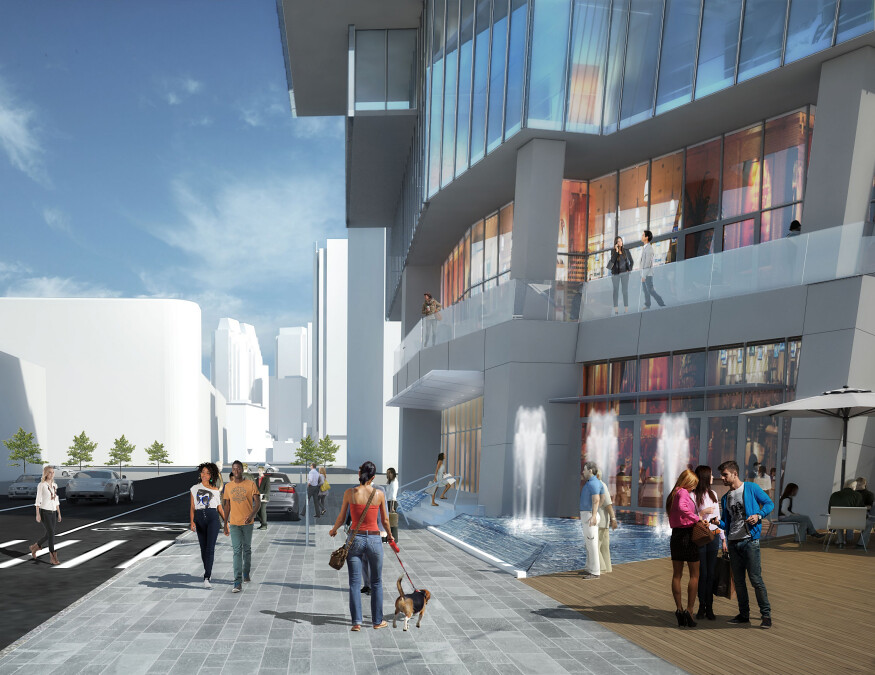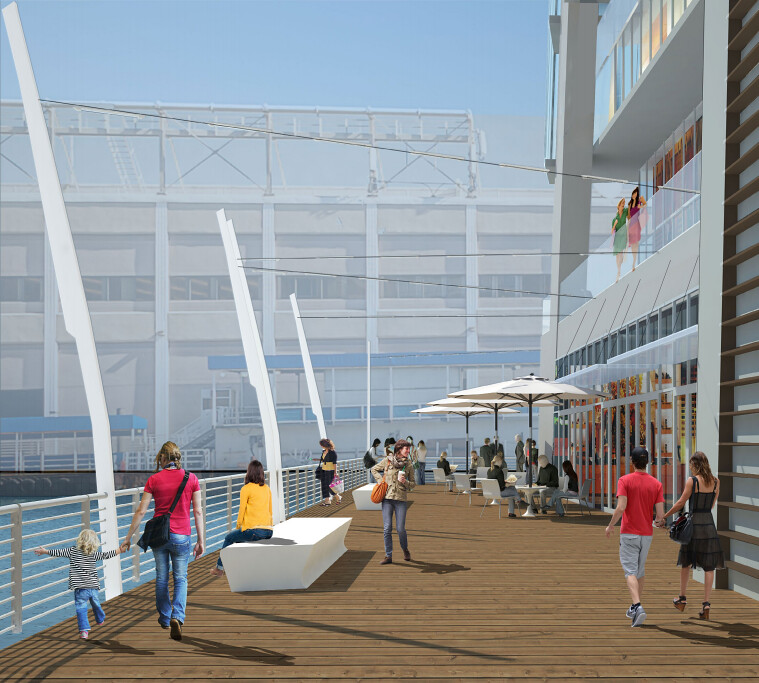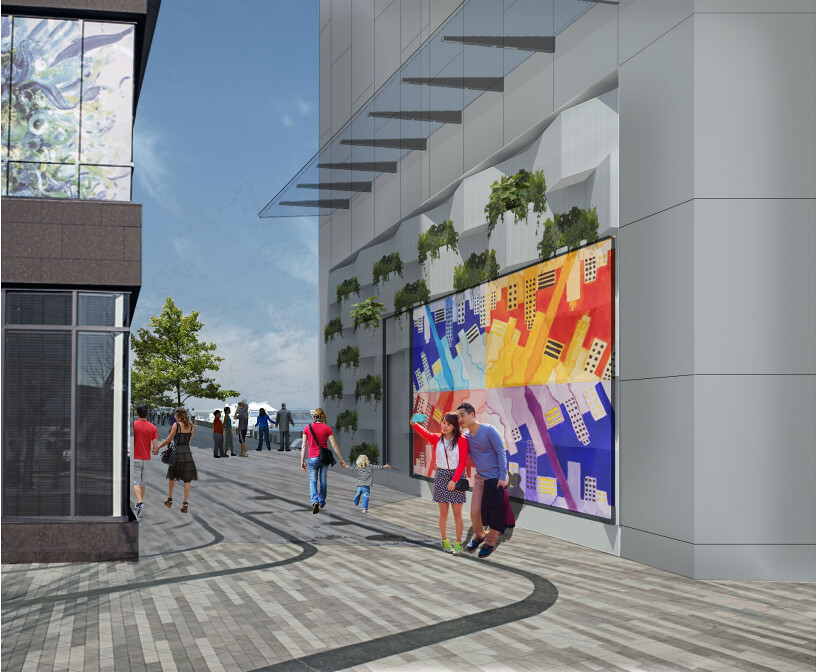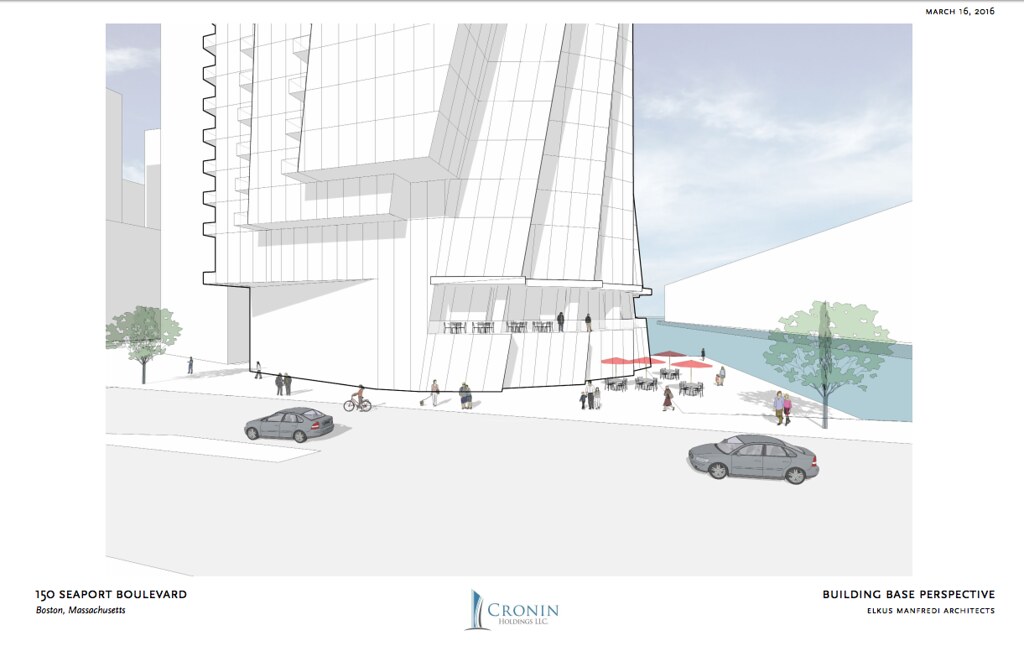KentXie
Senior Member
- Joined
- May 25, 2006
- Messages
- 4,195
- Reaction score
- 766
Re: Whiskey Priest/Atlantic Beer Garden Redevelopment | 150 Seaport Blvd | Seaport
Completely wrong. Market equilibrium only moves when one or both curves move and the only time they move is when quantity demanded or quantity supplied changes. See graph below:

Not exactly what I said. Yes I did say that demand curve and supply curve will be shifting but I never said that prices will never fall. What I said is that prices will not fall (if they even fall) to the point where developers and owners will be necessarily looking to have non-high end business, at least not at the rate the supply is being created. The Seaport is a small area and it remains to be seen that the supply of new commercial and residential space once the entire Seaport is built out will be enough to satisfy current and upcoming demand. A better scenario would be if the Seaport is competing with another area in Boston that is attracting the same demographic which they may with the Fenway neighborhood coming up but as of now I just don't foresee supply gaining enough ground to dent the price.
I'm always skeptical of articles saying that rent is on a downward trend. They've been saying for years, yet despite the vacancy, rent prices continue to go up. Part of this is due to the fact that the number of renters have increased significantly, part of it being supply not catching up.
https://www.bostonglobe.com/busines...sing-report/5CoErYq9XyTZof6GylKKpM/story.html
Furthermore, as more companies move into the Seaport, corporate demand increases. In addition, as the Seaport starts to fill out with luxury apartments and condos, you can be sure that restaurants will see demand from residents increase as well. In other words, demand in the Seaport is not restricted to a single customer base. As for how is demand supposed to grow as retail fills out? Easy, they are amenities and people would pay more to live in places where there's more accessibility to amenities and more amenities available. Think how much more attractive the Seaport would be if they open up a sports club, a high end Whole Foods, and/or luxury movie theater. As to where do the wealthy people who fill up the new condos and apartment come from? The suburbs as well as people from out of state who are hired by expanding companies.
Another thing I would add is that, again, with a booming economy, more people are looking to buy new houses and/or find a new place for themselves instead of living with their parents. At least in the foreseeable future, the quantity demanded will increase, further exacerbating the situation since supply is barely keeping up as of now. Depending on how fast the Seaport builds out, the entire Seaport would be mainly high end if they catch the wave, or slightly mixed if the economy tails off in the end.
I never said the demand curve is not downward sloping but you are wrong to say that only the supply curve shifts. The demand curve shifts for many reasons but it's especially at this time that I'm forecasting that the demand curve will be shifting to the right over time in the near future. The economy of Boston as well as the nation as a whole is in a boom period meaning two things: 1) companies will be expanding meaning they will be hiring more employees and looking for more places to house, and 2) more people being hired + decrease in unemployment rate leading to a rise in overall wages = more money to spend. This mean there will be more people in the near future that would be able to afford higher end products, whether it be housing or other goods. These companies will be looking to expand into new offices, their new employees will be looking to move closer to their work place, and the retail business will be looking to open new stores wherever these companies and employees move.No, real life is not as simple as Economics 101, but that does not mean it moves in the opposite direction of Economics 101 either. Demand is downward sloping, period. This is true in theory and in practice. Please, go find a situation where it isn't true and then take advantage of that to make yourself infinitely wealthy.
Curves don't shift with changes in quantity, the market equilibrium just moves along them. And as you move along the demand curve with increasing quantity, price drops.
Completely wrong. Market equilibrium only moves when one or both curves move and the only time they move is when quantity demanded or quantity supplied changes. See graph below:

It is true that developments create externalities (positive and negative) and the demand curve can shift as perceptions of a good change. But your argument seems to be that the demand curves shifts with each increase in supply to such a degree that prices will never fall. This is unlike any market I've ever heard of, and doesn't conform with reality.
Not exactly what I said. Yes I did say that demand curve and supply curve will be shifting but I never said that prices will never fall. What I said is that prices will not fall (if they even fall) to the point where developers and owners will be necessarily looking to have non-high end business, at least not at the rate the supply is being created. The Seaport is a small area and it remains to be seen that the supply of new commercial and residential space once the entire Seaport is built out will be enough to satisfy current and upcoming demand. A better scenario would be if the Seaport is competing with another area in Boston that is attracting the same demographic which they may with the Fenway neighborhood coming up but as of now I just don't foresee supply gaining enough ground to dent the price.
As we have previously discussed on this and other threads, much of the demand for the current expensive Seaport restaurants is corporate demand, largely associated with the convention spaces. How is this demand supposed to grow as a result of more retail space getting filled in? And where are all of these richer and richer tenants supposed to come from as more apartments and condos are built? The ink is already starting to spill over the effect that this increased supply is having on prices at the high end. More supply will only exacerbate this, and the market for retail space will behave identically to the market for residential space.
I'm always skeptical of articles saying that rent is on a downward trend. They've been saying for years, yet despite the vacancy, rent prices continue to go up. Part of this is due to the fact that the number of renters have increased significantly, part of it being supply not catching up.
https://www.bostonglobe.com/busines...sing-report/5CoErYq9XyTZof6GylKKpM/story.html
Furthermore, as more companies move into the Seaport, corporate demand increases. In addition, as the Seaport starts to fill out with luxury apartments and condos, you can be sure that restaurants will see demand from residents increase as well. In other words, demand in the Seaport is not restricted to a single customer base. As for how is demand supposed to grow as retail fills out? Easy, they are amenities and people would pay more to live in places where there's more accessibility to amenities and more amenities available. Think how much more attractive the Seaport would be if they open up a sports club, a high end Whole Foods, and/or luxury movie theater. As to where do the wealthy people who fill up the new condos and apartment come from? The suburbs as well as people from out of state who are hired by expanding companies.
Another thing I would add is that, again, with a booming economy, more people are looking to buy new houses and/or find a new place for themselves instead of living with their parents. At least in the foreseeable future, the quantity demanded will increase, further exacerbating the situation since supply is barely keeping up as of now. Depending on how fast the Seaport builds out, the entire Seaport would be mainly high end if they catch the wave, or slightly mixed if the economy tails off in the end.
Last edited:

